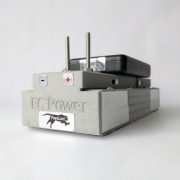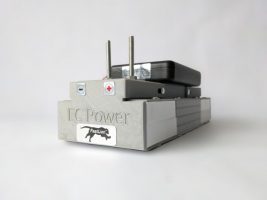High-density EV battery puts 10-minute charge times on the table
Bigger batteries that can store more energy are only part of the puzzle when it comes to driving mainstream adoption of electric vehicles, with scientists also working to minimize future plug-in times through advances in fast-charging technology. Scientists at Pennsylvania State University have operated at the cutting-edge of this field for some time and are now presenting another significant breakthrough, demonstrating a high-density battery that can be charged up in around 10 minutes.
Led by Chao-Yang Wang, the advance comes from an engineering team responsible for some impressive breakthroughs in recent years. In 2016, the team tackled the issue of hampered cold-climate performance for lithium batteries by integrating a self-regulating temperature mechanism. This centered on a nickel foil that rapidly warms the battery up in subzero temperatures, enabling it to function normally.
In 2019, the team leveraged this technology to charge a prototype lithium battery at high temperatures, conditions that would normally cause it to degrade. This again involved the use of a thin nickel foil, through which electrons flow to rapidly heat the battery up in just 30 seconds, before it is quickly cooled again. This was done in a way that allowed the battery to take advantage of faster charging offered by high-temperatures, but didn’t cause it to degrade.
This research demonstrated that an electric vehicle battery could be charged in 10 minutes to offer a range between 200 and 300 miles (320 and 480 km). The scientists have continued to chip away at this technology and in freshly published research, have combined this fast charge time with higher energy density in a new prototype battery.
It again uses the nickel-foil heating element to accommodate faster charging times, with the latest version of the battery featuring an energy density of 265 Wh/kg, a step up from the 209 Wh/kg of the previous version. This energy density and short charge time is described as a record-breaking combination, and could open up some interesting possibilities in electric vehicle design, according to the team.
“The need for smaller, faster-charging batteries is greater than ever,” said Wang. “There are simply not enough batteries and critical raw materials, especially those produced domestically, to meet anticipated demand.”
The battery was able to be charged to 70% in 11 minutes for 2,000 cycles, which the team says is equivalent to half a million miles covered purely via fast-charging. It sees this new battery technology opening a door to cheaper, smaller, energy-dense battery packs that can be quickly topped up to keep people on the move. This would be contingent on widespread access to the appropriate charging infrastructure, but if all it involves is a 10-minute stopover, you can imagine the tech proving popular in towns and cities.
“Our fast-charging technology works for most energy-dense batteries and will open a new possibility to downsize electric vehicle batteries from 150 to 50 kWh without causing drivers to feel range anxiety,” said Wang. “The smaller, faster-charging batteries will dramatically cut down battery cost and usage of critical raw materials such as cobalt, graphite and lithium, enabling mass adoption of affordable electric cars.”
The team is working to commercialize the technology through spinoff company EC Power, and has published the research in the journal Nature.
Source:High-density EV battery puts 10-minute charge times on the table





